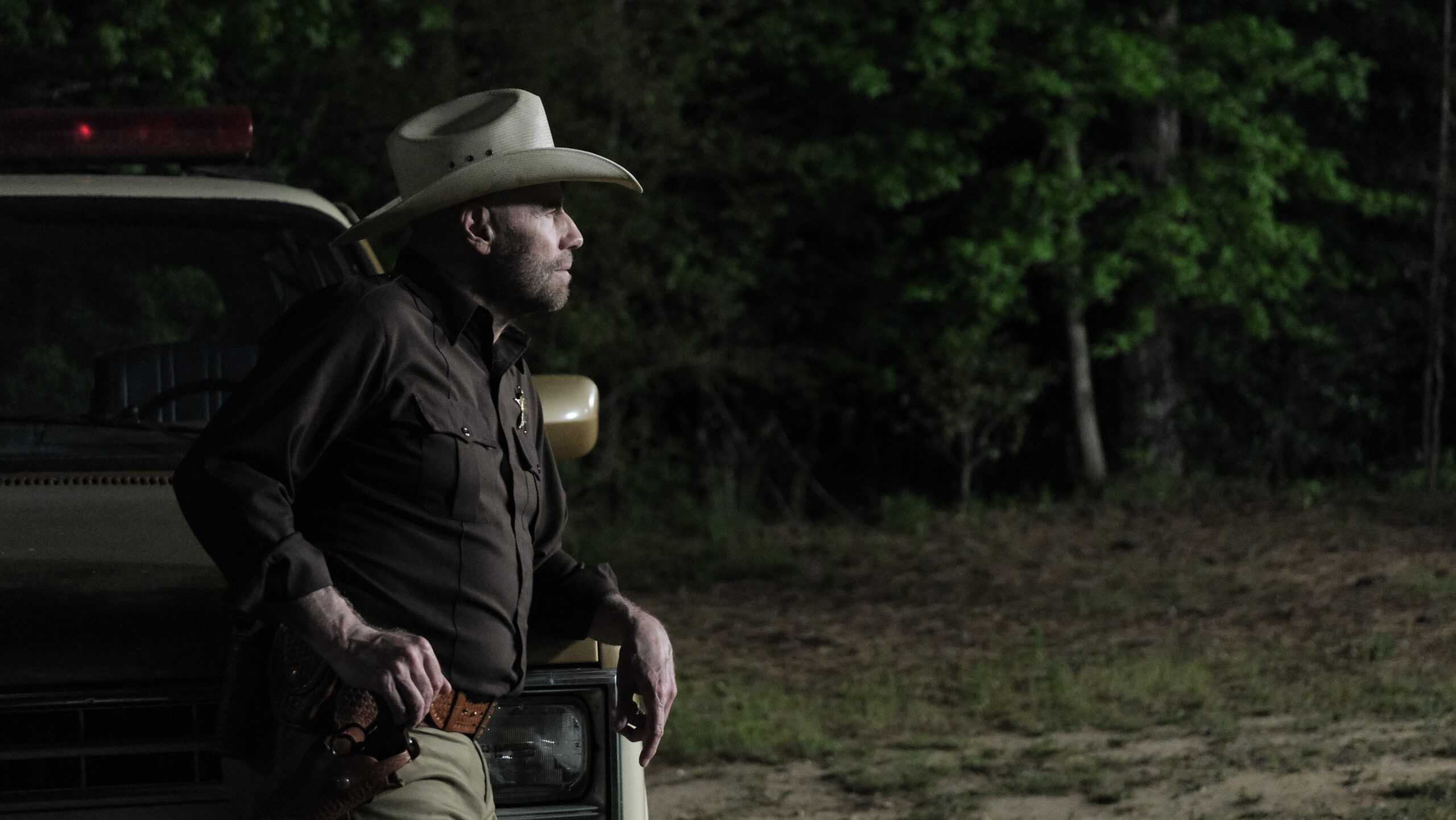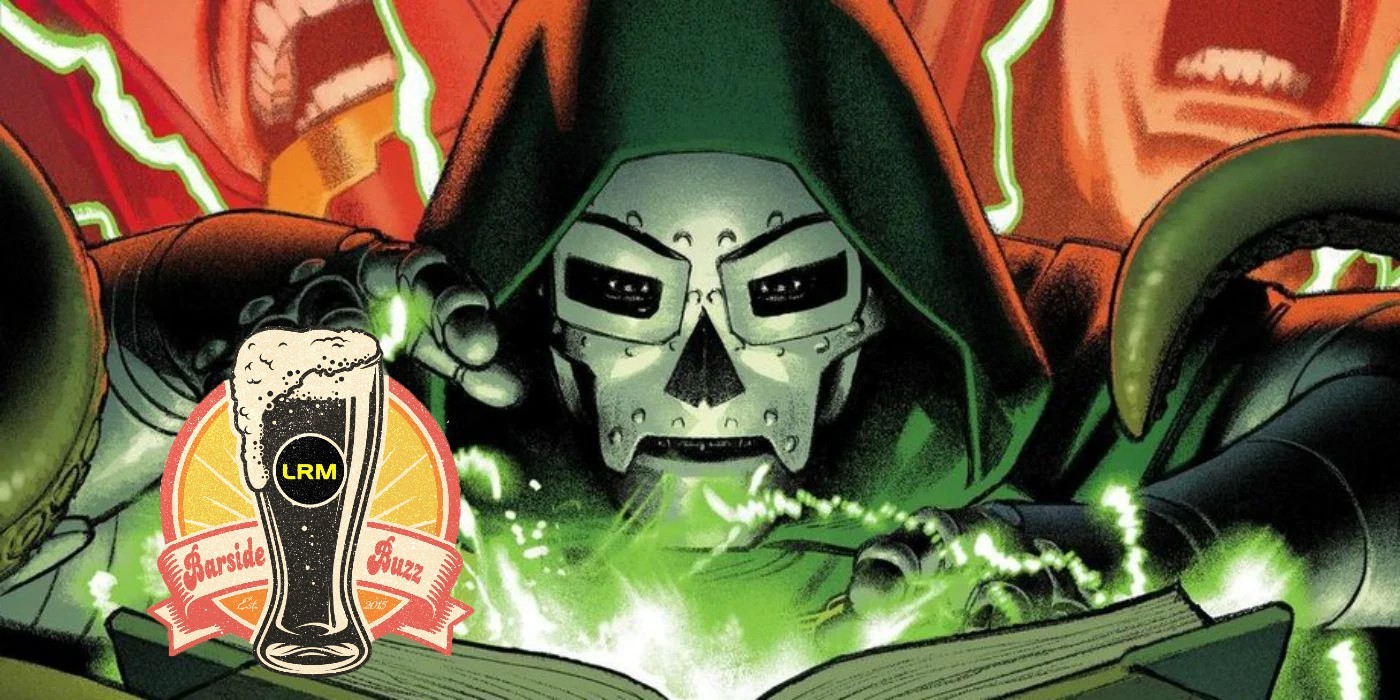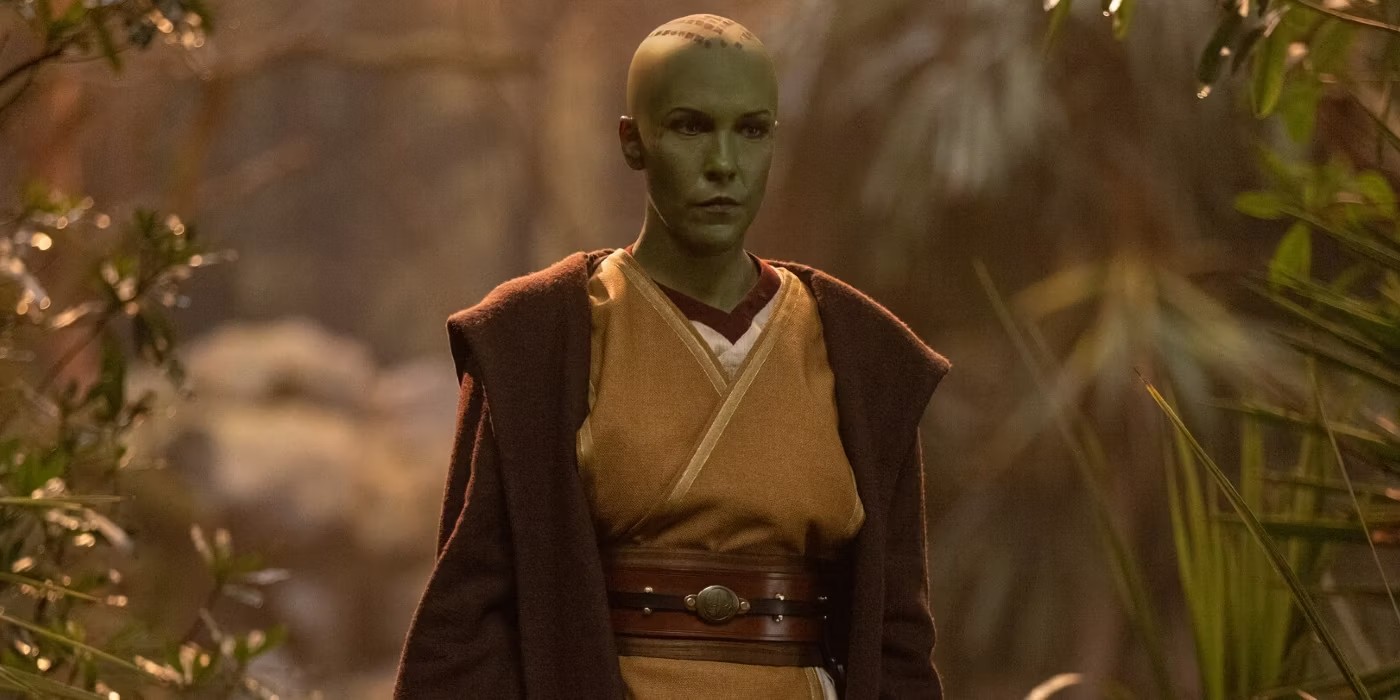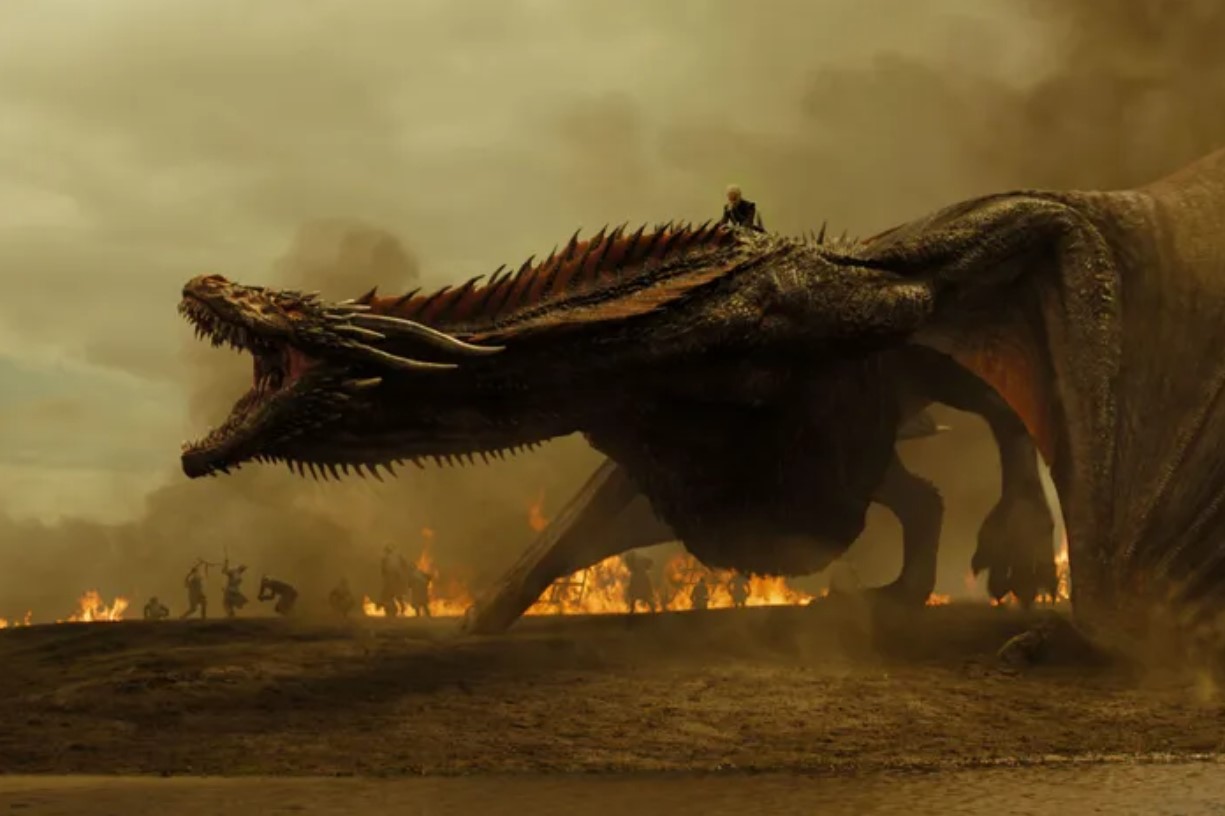The filmmaker Nicholas Maggio brings the small town crime in Mob Land. A thriller that has John Travolta kicking in the cowboy boots.
The Synopsis
Deep in the heart of Dixie, in a small town struggling with the ravages of addiction, a local sheriff (JohnTravolta, “Pulp Fiction”) tries to maintain the peace when desperate family man Shelby (Shiloh Fernandez, “Evil Dead”) robs a pill mill with his reckless brother-in-law, Trey (Kevin Dillon, “The Blob“). But the supposedly easy score takes a violent turn,alerting the New Orleans mafia’s revenge-seeking enforcer (Stephen Dorff, “Blade”), who threatens Shelby’s wife(Ashley Benson) and daughter. With its unpredictable twists and turns, Mob Land is a heart-pounding, action, thriller.
For the release of Mob Land I was connected with the writer and director, Nicholas Maggio. He talked about the making of the villain in the script and who takes the credit for John Travolta’s participation. Maggio also opened up about his childhood, and how it influenced him to make this project and more!
Nancy Tapia: I had a joy with the villain in this film, which I was cheering for. What made you create this twist for us at the end?
Nicholas Maggio: I love it… As I was writing the script, that’s funny. One of the things that I’m most proud of, I think about the film, is the fact that we watched the antagonist do all this horrible shit, this horrible stuff. I don’t know if I should give away too much, but he does horrible things and has pretty much no redeeming qualities the entire time. Then at the end, you’re rooting for him and you’re sad.
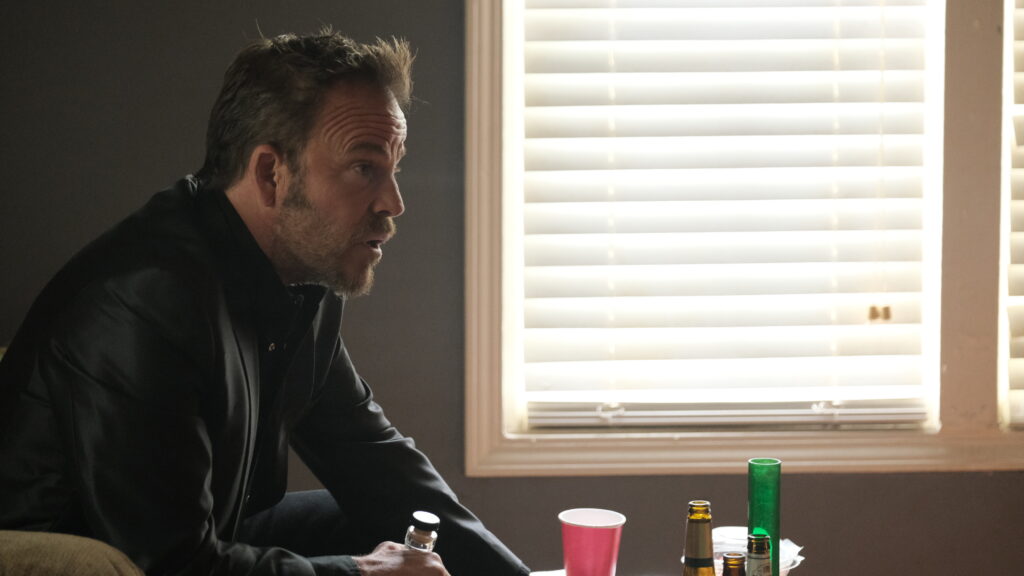
I think that just speaks to not only, I wrote a decent script, but Dorff (Stephen Doriff, “Blade“) just acted his ass off with it. He just played the nuances so perfectly that he was able to pull that off in such a short amount of time to make you really pull for him right there at the end.
Nancy Tapia: I totally did!
Nicholas Maggio: I think I’ll give Dorff all the credit. For sure.
Nancy Tapia: I love these films that are nothing of what you anticipate at the beginning. We are learning lessons about people,people from small towns. What do people do in small towns? What’s there to do? And being looked down upon, when they have better morals than any else.
Nicholas Maggio: Yeah, I think there’s a bunch of themes throughout that you can pick apart and that you can take for yourself. But this idea that it is nihilism meets idealism. It’s different perspectives on the small town life from a big city guy, from a small town guy.
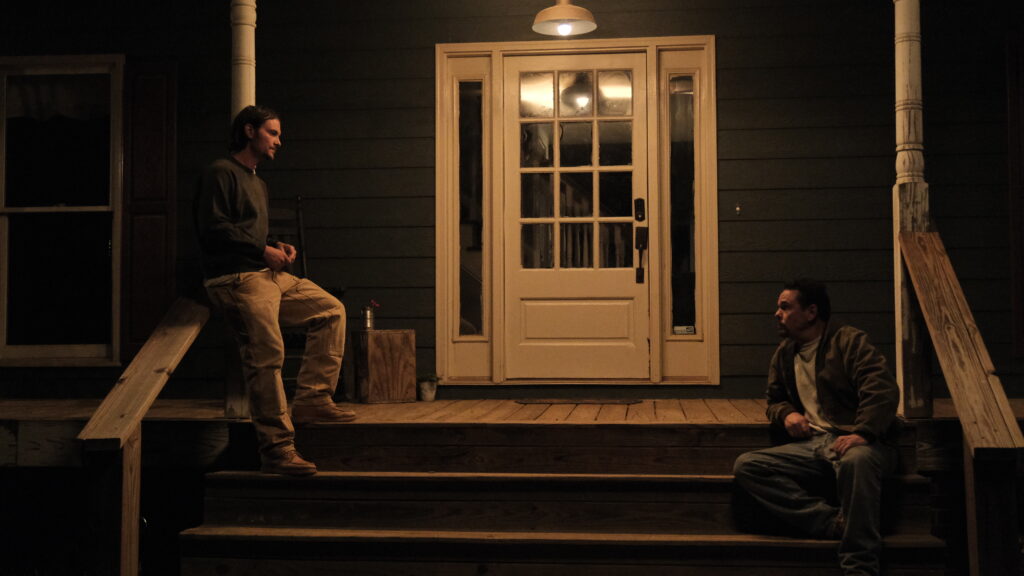
It’s the idea of the death of the American dream and how much fight you still put into that with the idea of, I guess with the knowledge of knowing how it’s all probably going to end. There’s a lot of that throughout the film. It is just all about perspective. And it’s about the perspective of the characters, their perspectives shifting throughout the film. Then also the viewer, how we perceive… How we feel about those towns as well and about those lives.
Nancy Tapia: I understand you grew up in Bakersfield, California.
Nicholas Maggio: I did. I was born in Louisiana, but I claim Bakersfield is raising me. That’s where I went to high school. That’s basically where I grew up. I lived in a couple of small areas before that when I was a kid, but I really became more or less who I am in Bakersfield. Yeah, I claim Bakersfield.
Nancy Tapia: Did you find a little bit of inspiration from growing up in Bakersfield?
Nicholas Maggio: Absolutely. Bakersfield is still, it’s on the cusp of central and southern California, but it’s central. It is in the middle of the state. It’s a decent sized town, small town mentality. I got to pull a lot of things, yeah, a lot of inspiration for the way these towns work.
Also Read Valentina Herrera And Veronica Rodriguez Talk Ducks In The Slumber Party | Exclusive
It’s obviously all a little fictionalized. It’s all a little… I had fun with it. But also, both my parents were born and raised in Mississippi. I was lucky enough to spend summers as a kid in Mississippi, so I got to see these really small rural towns as well.
Now I’m just obsessed with the south and these small towns. And so, having it set in northern Alabama, the story. It was really fun to be able to pull from Bakersfield, Mississippi, all of these ideas of small town and plug them into the film.
Nancy Tapia: I know where Bakersfield is. I grew up in Lancaster, it’s smaller.
Nicholas Maggio: Oh, it is smaller. It’s funny, from out of state, they think California, “Oh, Malibu.” They think of Santa Monica and LA. It’s like, no, no, it’s filled with little, tiny towns just like everywhere else in the country as soon as you go an hour inland. Yeah, Lancaster is not unlike Bakersfield in a lot of ways. Fresno, Modesto, there’s tons of them.
Nancy Tapia: Talk about how you emphasized that you made this film to your 13-year-old self.
Nicholas Maggio: Yeah. I mean, I claim Reservoir Dogs. I claim being 13, it was the moment where I realized that film was something different. It could be something different than Indiana Jones, than the Goonies, than Rad and Breakfast Club, all these great films. But the independent film of the ’90s.
So, Mob Land for sure is an homage to not only neo-noir genre, classic American neo-noir, but also that independent gritty ’90s filmmaking. And so, truly, I wanted it pretty and poetic and simple and linear and brutal, and that’s what I set out to do.
Everything that my 13-year-old self responded to when I first started discovering independent
filmmaking and like I said, Reservoir Dogs, movies in that vein. I guess I just created Mob Land as a love letter to all that. The movies that raised me in a way.
Nancy Tapia: How did you manage to get Travolta in this film?
Nicholas Maggio: That was, first of all, it was Stephen. Stephen Dorff read the script. He got the script first from the producer. He luckily fell in love with it. And he was like, “Well, I think Travolta.” He literally texted him, he sent him the script. Then maybe a week later, Travolta’s on the phone with me.
I mean, he is responsible for getting it done and getting it to Travolta. Dorff became a champion of mine pretty early on. And I was lucky enough to get him not only in the film, but also on my side to round out the rest of the cast. Travolta’s one of those guys that’s just so well-respected by other actors. He’s such an actor’s actor I think, because he’s just so damn good. But yeah, he got it to Travolta.
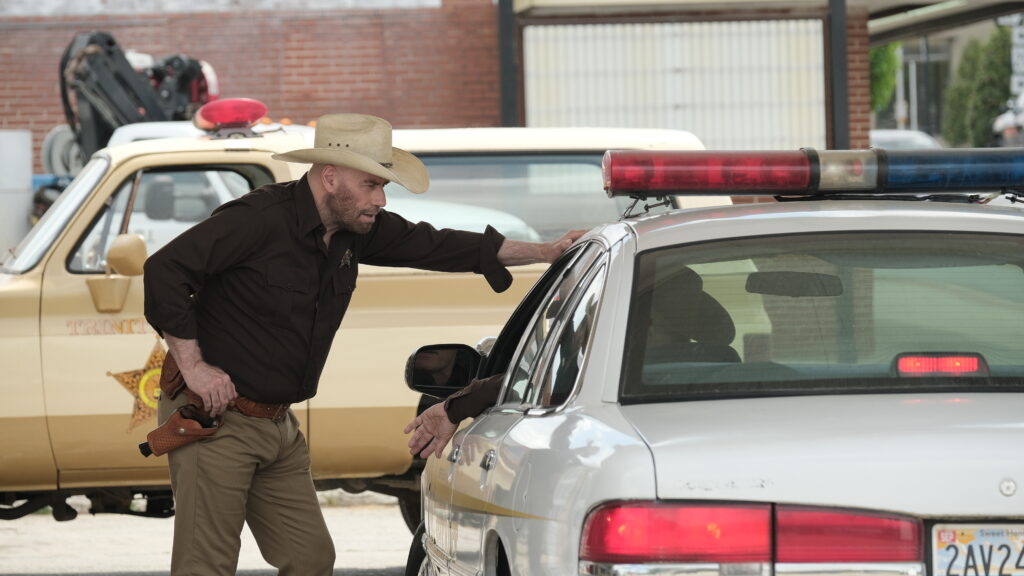
Also Read The Collective | Tom DeNucci On Bringing Back The Love Of 90s Action Films
Like I’ve been saying, luckily it’s a good script. It wasn’t bad. I think there was enough meat on all the characters that everyone who read for a different part could see that they could do something with it. So, even though “Bodie ” is not a massive character, he’s more or less the bookends on the film, Travolta’s character. He’s not in all of it. It doesn’t necessarily revolve around him, but he is more or less the moral compass of the story. I think John Travolta really responded to that and figured out it was a role he could put a lot of himself into.
Nancy Tapia: And the accent…!
Nicholas Maggio: Man, it’s so funny. We had a few conversations before production. I based the character on some distant relatives, my grandpa, and then some great uncles who were sheriffs in Mississippi. So, he wanted to see photos, he wanted to see if I had any videos of them. He was very interested in where these characters came from, not only geographically, but just emotionally.
We spent a lot of time talking about that. Admit, he showed up to set, he had his gait, his walk, he had his accent. I mean, that was all, he was ready. The guy, man, such a professional. Never had sides on set. Knew every line, was ready for everything. I mean it was just, I was so lucky to have him and everyone.
Nancy Tapia: I feel like it’s been a new comeback of the cowboy attire, the cowboy look, the cowboy persona, the way they carry themselves. I bet he enjoyed playing that.
Nicholas Maggio:I think so too. He gets to wear a big Smith & Wesson gun, a revolver and a cowboy hat and boots, and drive this old SUV. I mean, it’s a pretty cool looking role. I think he probably had a little fun with that.
He looked so good too, from the moment I got the photos of him in the wardrobe doing the test, I was like, “That’s 100%, that’s it.” I mean, he just looked the part. All of them did, Dorff as well, Dillon (Kevin Dillon). They all just looked the parts so perfectly, so it was really fun. But yeah, Travolta especially, he would put that hat on, walking to set, and it was like he became “Bodie”, which was so fun to watch.
Nancy Tapia: Now, Kevin Dillon, he was one of my crushes growing up. Hahaha…
Nicholas Maggio: Hahaha…Amazing.
Nancy Tapia: That scene, I’m not going to give any spoilers. But how was it shooting that scene where there’s this bag involved?
Nicholas Maggio: Sure. Funny enough, it’s a pretty brutal scene that I wrote. It was so interesting because I didn’t know Kevin before this. I didn’t know John, I didn’t know Dorff. But even in the short amount of time that we have for production, it’s like I got to really care about them as individuals. Just because I think it’s often a relationship between director and actors. On and off-screen, I was very always sensitive to their feelings, their comfort, their emotional state, whatever it is.
So, it was really interesting watching that scene and watching Kevin. It was the only time on set where I got a little emotional watching the monitors while he was acting. I almost felt bad for putting him in this situation, for putting Kevin Dillon in this situation. So, I’m watching him, but I kept remembering he’s acting and he is Trey in this situation.
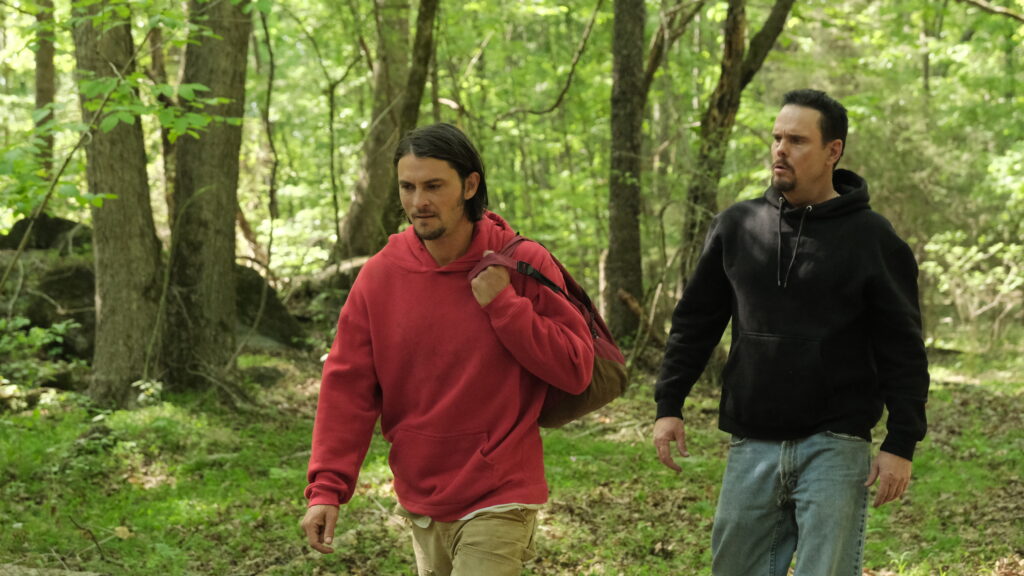
Also Read Dreamin’ Wild | Bill Pohlad On Keeping Authentic Storytelling Of Donnie Emerson’s Life
He was having a good time. I mean that’s what Kevin… They all love to act and it was fun to watch Kevin. It was different for me, but he was there playing “Trey”. He was there to make sure that it looked right and to make us care about “Trey” and he did it! Yeah, it was pretty interesting that I found myself getting emotional during that…
Nancy Tapia: I did-
Nicholas Maggio: No, maybe it wasn’t sadness. It wasn’t, but almost, there was a lot. It was a little disgust because I couldn’t believe I wrote that scene. But yeah, it was fun. It was just so fun to watch all of those people act, everyone in the film.
Nancy Tapia: It was brutal.
Nicholas Maggio: It is.
Nancy Tapia: Well, thank you for talking about the film.
Nicholas Maggio: Absolutely.
Nancy Tapia: Can I compliment your Charles Bronson shirt that you have on?
Nicholas Maggio: Thanks.
Nancy Tapia: I grew up hearing my dad being told he looked like him when he’d leave facial hair, his mustache. Haha…That’s how I knew who Bronson was growing up.
Nicholas Maggio: You’ve got a handsome father. I love that. That’s amazing, haha…
Nancy Tapia: The Latin version haha…
Nicholas Maggio: Yeah. I love that. That’s perfect. Thank you so much for having me. I really appreciate the time.
Nancy Tapia: No, thank you. And congratulations.
Nicholas Maggio: All right. Appreciate it. Thank you.
Mob Land is now available in theaters
Source: LRMExclusive, Saban Films
 FOR FANBOYS, BY FANBOYS
Have you checked out LRM Online’s official podcasts and videos on The Genreverse Podcast Network? Available on YouTube and all your favorite podcast apps, This multimedia empire includes The Daily CoG, Breaking Geek Radio: The Podcast, GeekScholars Movie News, Anime-Versal Review Podcast, and our Star Wars dedicated podcast The Cantina. Check it out by listening on all your favorite podcast apps, or watching on YouTube!
Subscribe on: Apple Podcasts | Spotify | SoundCloud | Stitcher | Google Play
FOR FANBOYS, BY FANBOYS
Have you checked out LRM Online’s official podcasts and videos on The Genreverse Podcast Network? Available on YouTube and all your favorite podcast apps, This multimedia empire includes The Daily CoG, Breaking Geek Radio: The Podcast, GeekScholars Movie News, Anime-Versal Review Podcast, and our Star Wars dedicated podcast The Cantina. Check it out by listening on all your favorite podcast apps, or watching on YouTube!
Subscribe on: Apple Podcasts | Spotify | SoundCloud | Stitcher | Google Play

